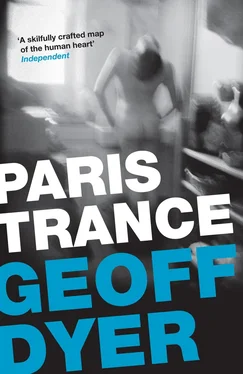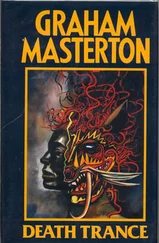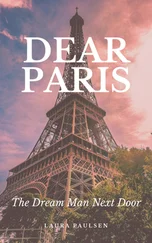‘Twenty.’
‘Ah, a fine age for a brother,’ said Luke, pleased, for some reason, to hear himself say this. ‘You have just the one brother?’
‘Yes. And a sister.’
‘Did you have pets?’
‘A lovely golden retriever.’
‘You had a brother, a sister, and a golden retriever?’
‘And two cats. What about you? Do you have brothers and sisters?’
‘No.’
‘Nor pets?’
‘No. In fact I’ve just realized something crucial about myself. I was an only child. No brothers or sisters. And I had no pets. No cats or dogs. So although I had my parents’ love focused on me I had nothing to love. I loved them, of course, as little children do, but parents don’t count really. My whole experience of love was being on the receiving end of it. A present that was always being given to me. It never occurred to me that I might love something. Except my toys. I loved my toys.’
‘So, not to beat around the hedge—’
‘Bush: beat around the bush.’
‘Ah thank you. You must correct my English when I make mistakes,’ said Nicole, but Luke was already wishing he had not done so. A hedge was a much better thing to beat around than a bush.
‘So,’ Nicole went on, ‘not to beat around the bush, you are very selfish. What is the word? Spoiled?’
‘Yes, but not just spoiled. Ruined.’
‘Ruined? What is that word? What does it mean?’
‘Ruined. As in ruins. Ruination. It means to fall into disrepair. Through neglect perhaps. But that’s only half the story. It’s also something to be aspired to, worked towards. Buildings do not just fall into ruin. Something in them wants to achieve the condition of ruination. Any truly great building will achieve its destiny only as a ruin—’
‘You are trying to be clever.’
‘Yes, I am. It’s true. It’s a weakness. It will be my ruin.’
‘There is a good thing about only children though,’ said Nicole.
‘What is that?’
‘If you have brothers and sisters you learn to lie. If you don’t have them then you don’t know how to lie.’
‘Except to yourself.’
‘Yes, but that’s not much fun is it?’
She had finished sipping her apricot juice.
‘Shall we go?’
‘Yes.’ Nicole pulled out her spectacle-case.
‘I didn’t know you wore glasses.’
She opened the case which was full of banknotes and coins. ‘Is my purse,’ she said.
‘I’ll get this,’ said Luke. She watched him stand up to pay. He wore no jewellery. No rings, no bracelets or chains, no watch. He didn’t even carry a wallet: he kept his money screwed up in his pockets. He didn’t wear after-shave. He didn’t drum with his fingers on tables, didn’t whistle or doodle on napkins, didn’t chew gum or his finger nails. She noticed the things he didn’t do.
They came to the river again: a different bridge. A man and a woman passed. They were walking with their arms around each other. Across the river were the broken walls of old houses that were being torn down. They crossed over into the Marais, passed the corner shop where the old hand-painted sign — ‘Boulangerie’ — had been preserved even though it was now an expensive clothes shop called Le Garage. Their shoulders bumped when they walked, sometimes. A Dalmatian padded up to them while they stood looking in a shop window. Nicole patted its head and when they walked on it followed them as if it were their dog. She slipped her arm through Luke’s. Her arms were bare. There was only his shirt sleeve between their skin.
At the Bastille the streets were gridlocked with pedes trians. The Dalmatian disappeared, which was a shame.
‘Perhaps we’ll find him again.’
‘I hope so.’
‘I felt he was our dog,’ said Luke.
‘He is our dog,’ said Nicole. They had both said ‘our’. They turned into rue Duval and, in moments, were away from the crush of people. They went to the Café Saigon.
‘What would you like?’ Luke asked.
‘You choose.’
Luke ordered, in faltering French, but she liked the way he spoke to the waitress, his smile. He had nice manners.
They shared a portion of satay, followed by plates of vegetables, stir-fried. Nicole ate slowly — a slice of carrot at a time — and drank little wine.
‘You eat,’ Luke said, ‘at the speed of your hair.’
‘What does that mean?’ said Nicole.
It took an effort of will not to say, ‘It means I want to spend the rest of my life with you. I want to be with you when you are old, when your hair is grey. .’ What he actually said was: ‘I don’t know. It just seems true.’ His plate was empty. He watched her eat, looked at her hair. He is in love with me, Nicole said to herself. She looked up again. Their eyes met. It felt as if they were kissing. Luke poured another glass of wine for himself.
‘Gulp,’ she said, touching his hand. ‘Gulp.’
They walked back to his apartment, holding hands. Their hands grew moist. Luke made coffee, lit a candle. Asked if she was warm enough. She studied the photograph of the demonstration.
‘Is this of Belgrade?’ she said.
‘I don’t know.’
‘I think it is. Do you know when it was taken?’
‘I don’t, I’m afraid.’
Neon from the café opposite glowed on the walls, reddish. Nicole used the bathroom. When she came back they sat on hard chairs, drinking the coffee neither of them wanted. While they talked, their fingers touched, then their hands. Their fingers became intertwined. He spoke quietly. In order to hear she leaned her head towards him. He breathed in the smell of black hair, his breath a warm shiver in her ear, her spine. She traced the line of his jaw from his ear to his chin. He looked at her mouth, her full lips. She caught a glimpse of herself in his eyes. He ran his fingers through her hair. She touched his neck. She said something he could not hear and when she spoke again her lips were almost touching his cheek. She touched his fingers. His nails were clipped short. She felt his wrists, traced the bones and veins in his arms, his thin arms. He touched the ring on one of her fingers which, for all he knew, could have been the finger on which wedding rings were worn. He looked at her eyes, the deep, deep colour. She smelt the coffee on his breath. A breeze entered the room. The candle flame persisted. He breathed in the smell of her hair again. As she spoke a narrow strand of saliva stretched momentarily between her lips. He touched the mole on her cheek. She ran a finger along his lips. His lips touched her eyelids, the flutter of her eyelashes. Her fingers moved up his forearm until she came to the crook of his elbow. He did the same, moved his hand higher to feel the slight swell of her bicep. His fingers met round her arm. Their lips almost touched, then they did, for a second, and then, a few seconds later, they did so again. She kissed him, slightly — only the sound proved it was a kiss — then moved her lips away. Their lips touched again. They were kissing. His hand was on her back, feeling her spine, moving, bone by bone, up to her neck, under the mane of hair through which he ran his fingers, pulling it slightly, then harder, tilting her head back so that he could cover her throat with his mouth. He felt her hands on his back, on his skin, pulling his shirt free, surprised how thin he was. He moved his hand under her arms, feeling the sweat gathered there. Her breasts were very small. Her hands were on his shoulder-blades, running down his ribs, moving to the small of his back. They slid off the chairs so that they were kneeling, facing each other. She undid the top button of his shirt, then the second. He moved his hands around the hem of her dress, moving it slightly up her thighs, brushing the outside of her legs and then touching the inside, the softness, the unbelievable softness.
Читать дальше












